Archive
02 November 2023
NAE appoints Paulien Herder, Mark van Loosdrecht and Andrea Ramirez Ramirez as NAE Fellows
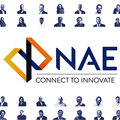
The Netherlands Academy of Engineering (NAE) appoints 62 top experts as NAE Fellow, including professors Paulien Herder (and dean), Mark van Loosdrecht and Andrea Ramirez Ramirez of the faculty of Applied Sciences. In total, 11 of the 62 experts are employed at TU Delft. President and Rector Magnificus of the TU Delft, Tim van der Hagen, is also one of these experts.
02 November 2023
TU Delft researchers discover new ultra strong material for microchip sensors
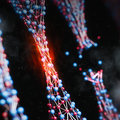
A material that doesn't just rival the strength of diamonds and graphene, but boasts a yield strength 10 times greater than Kevlar, renowned for its use in bulletproof vests.
30 October 2023
GUSTO arrived on Antarctica
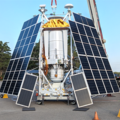
NASA’s GUSTO balloon observatory has arrived on Antarctica onboard the Wallops C-130 airplane. It is scheduled for launch around the 15th of December. GUSTO is equipped with three 8-pixel far-infrared cameras delivered by SRON and TU Delft and will carry out the first large-scale survey with velocity-resolved imaging of the spectral lines emitted by three cosmic elements between stars.
26 October 2023
Controlling waves in magnets with superconductors for the first time
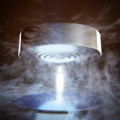
Quantum physicists at Delft University of Technology have shown that it’s possible to control and manipulate spin waves on a chip using superconductors for the first time. These tiny waves in magnets may offer an alternative to electronics in the future, interesting for energy-efficient information technology or connecting pieces in a quantum computer, for example.
26 October 2023
DNA Origami nanoturbine sets new horizon for nanomotors
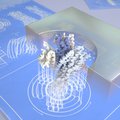
23 October 2023
Kagome: promising quantum material to study superconductivity
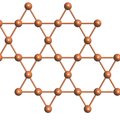
Quantum scientists from the Ali Lab at Delft University of Technology and their collaborators from the Max Plank Institute of Microstructure Physics, University of California Santa Barbara, and others, have found proximity–induced superconductivity with strong magnetic field direction dependence and a signal of edge supercurrent inside a Kagome metal. The study, published in Science Advances, shows the promising properties of Kagome metals to investigate unconventional superconductivity and Josephson devices.
16 October 2023
New connections enable long-distance quantum networks
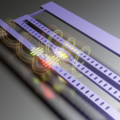
Quantum scientists from Campinas University in Brazil and the Delft University of Technology have developed an optomechanical system that uses dissipative interactions to coherently convert between microwave mechanical excitations and optical signals.
21 September 2023
TU Delft scientists put ChatGPT to the test

Researchers at Delft University of Technology and RWTH Aachen University have put ChatGPT’s knowledge on science and engineering to the test. By letting 198 Delft scientists evaluate GPT-3.5’s answers to questions covering natural science and engineering disciplines at the university, they found out how well the large language model can answer university level questions.
15 September 2023
TU Delft Reactor Institute in Focus broadcast on Nuclear Energy
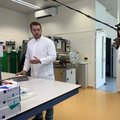
On Monday 11 September 2023, Focus aired a broadcast on nuclear energy in which EPZ, COVRA and TU Delft Reactor Institute were interviewed.
05 September 2023
ERC Starting grant for CO2 recycling in chemical industry

Converting large concentrations of carbon dioxide (CO2) into products for the chemical industry. That is what Tom Burdyny, recipient of an ERC Starting Grant, wants to achieve. The method that might make this possible is called electrolysis, which creates new chemical bonds by application of electricity.